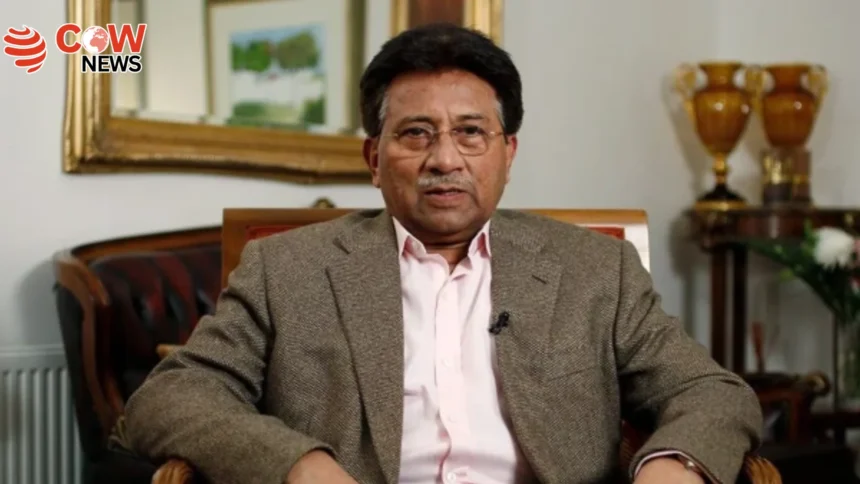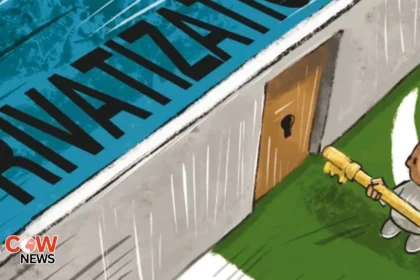The ancestral agricultural land and property of former Pakistani military ruler General (Retd.) Pervez Musharraf in India’s Uttar Pradesh have been officially auctioned and transferred to new owners under the Enemy Property Act. According to Indian media reports, the property located in the village of Kotana, District Baghpat, has been removed from government records as belonging to the Musharraf family and now bears the names of new owners.
The high-profile auction was conducted under the supervision of the Custodian of Enemy Property office in Lucknow and carried out in accordance with directives from Uttar Pradesh Chief Minister Yogi Adityanath. The land had been registered in the names of Pervez Musharraf’s family members, including his brother Dr. Javed Musharraf, who had migrated to Pakistan following the partition in 1947. The property, measuring 13 bighas, was located in Tehsil Baraut of Baghpat district.
As per Indian land measurement systems, a bigha generally equals four kanals or approximately 0.625 acres, though the exact measurement may vary between states. The property was classified under “enemy property” after the Musharraf family settled in Pakistan post-Partition, and had remained under this designation for decades.
The auction process culminated with the sale of the 13-bigha land for INR 13.8 million (approximately 1.38 crore). The buyers—contractors Pankaj and Manoj Goyal, in partnership with JK Steel from Ghaziabad—became the new legal owners. Prashant Saini, a supervisor from the Custodian of Enemy Property office in Lucknow, was dispatched to Baraut to oversee the formal registry of the land transfer to the new owners.
According to historical accounts, Pervez Musharraf’s father Musharrafuddin and mother Begum Zarin originally hailed from Kotana village, where they were also married. The family moved to Delhi in 1943, and it was there that Pervez Musharraf and his brother Dr. Javed Musharraf were born. After the partition of British India in 1947, the family migrated to Pakistan, which led to the classification of their Indian assets under the Enemy Property Act.
Under Indian law, the Enemy Property Act permits the government to appropriate property left behind by individuals who migrated to Pakistan or China during the wars of 1947, 1965, and 1971. The custodian of enemy property is entrusted with the management and disposal of such properties. In Musharraf’s case, the land remained under this classification, although portions of it were still registered in the names of family members including his cousin Humayun, brother Dr. Javed Musharraf, and others.
While a part of the ancestral house in Kotana was previously sold, the agricultural land belonging to the Musharraf family remained in legal limbo for decades until the state government moved forward with its auction earlier this year. Indian authorities confirmed that the transfer of ownership is now complete, and all legal and administrative records have been updated accordingly.
Local sources indicate that the land had been lying unused for years and had drawn attention due to its historical and political association with the late Pakistani leader. “The land belonged to a high-profile family but was of no economic use in its current state,” said an official involved in the registry process. “Its auction and transfer into active ownership will now allow for productive agricultural or commercial use.”
The sale of Musharraf’s ancestral land has also generated political commentary in both India and Pakistan. In India, it’s being seen as part of a broader push by the Yogi Adityanath-led government to reassert control over long-abandoned or disputed properties, especially those tagged under the Enemy Property category. Since 2016, India has intensified efforts to auction such lands, particularly after amendments were made to the Enemy Property Act barring legal heirs of such properties—if considered “enemy”—from reclaiming ownership.
In Pakistan, the auction has raised emotional responses from some quarters, especially among those who recall Musharraf not just as a military leader but as a symbolic link to pre-partition roots. Musharraf, who passed away in Dubai in February 2023 after a prolonged illness, had often spoken fondly of his Indian roots, recalling family memories of Delhi and Uttar Pradesh in interviews and memoirs.
Pervez Musharraf served as Pakistan’s Chief of Army Staff and later assumed the presidency following a military coup in 1999. His decade-long rule was marked by significant political events, including the Kargil conflict, cooperation with the U.S. during the War on Terror, and multiple constitutional crises in Pakistan. Despite controversy, he remained a prominent figure in Pakistan’s political and military landscape until his resignation in 2008.
The property transfer effectively ends any remaining legal connection between Musharraf’s family and their ancestral land in India. Officials have confirmed that this was one of several such properties across India where proceedings have been completed or are currently underway.
As the story gains traction across South Asian media, it highlights the lingering consequences of the partition and the evolving interpretation of legacy, heritage, and legal entitlement across national boundaries. While the new owners prepare to utilize their newly acquired property, the Musharraf family’s historic ties to Kotana now officially become a chapter closed—at least on paper.







